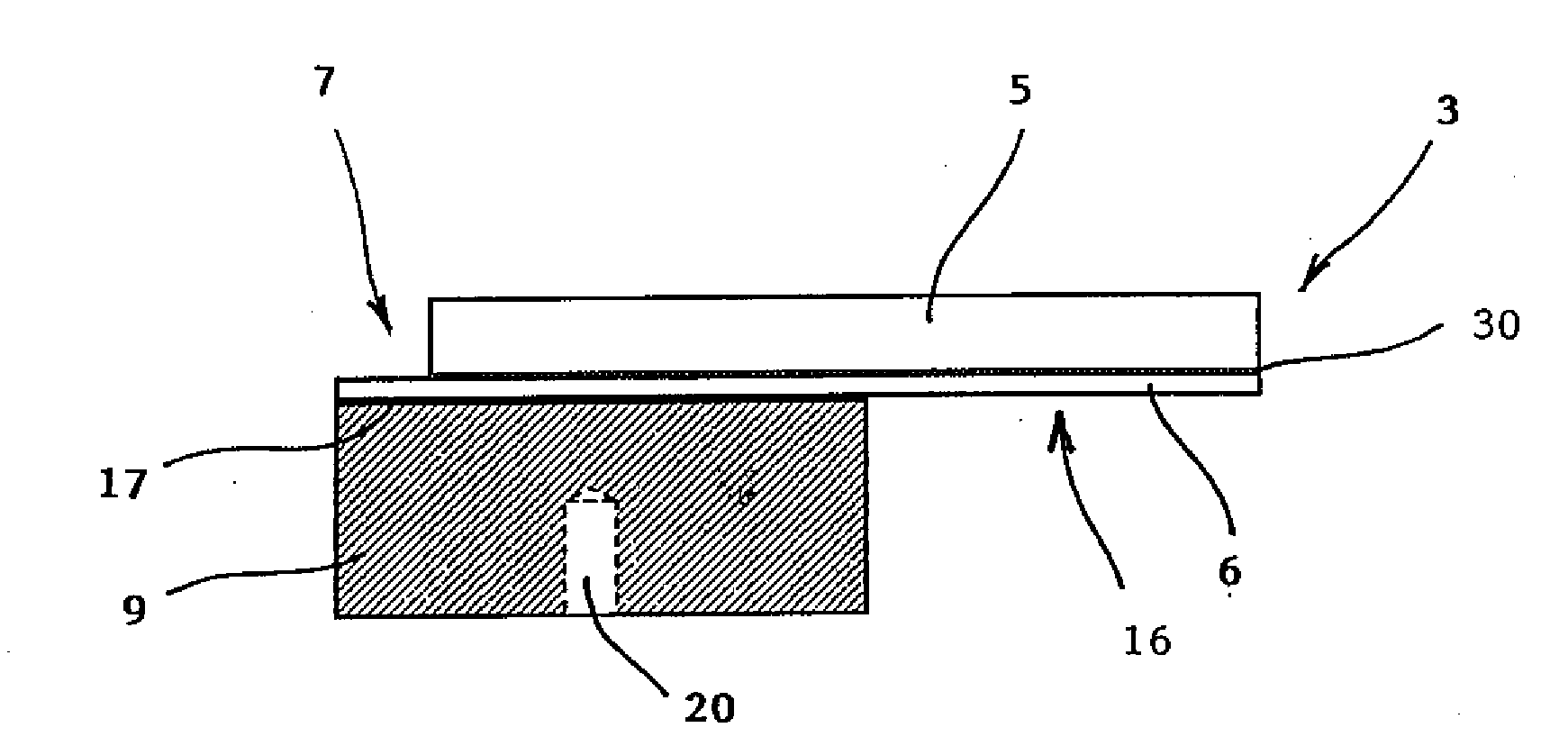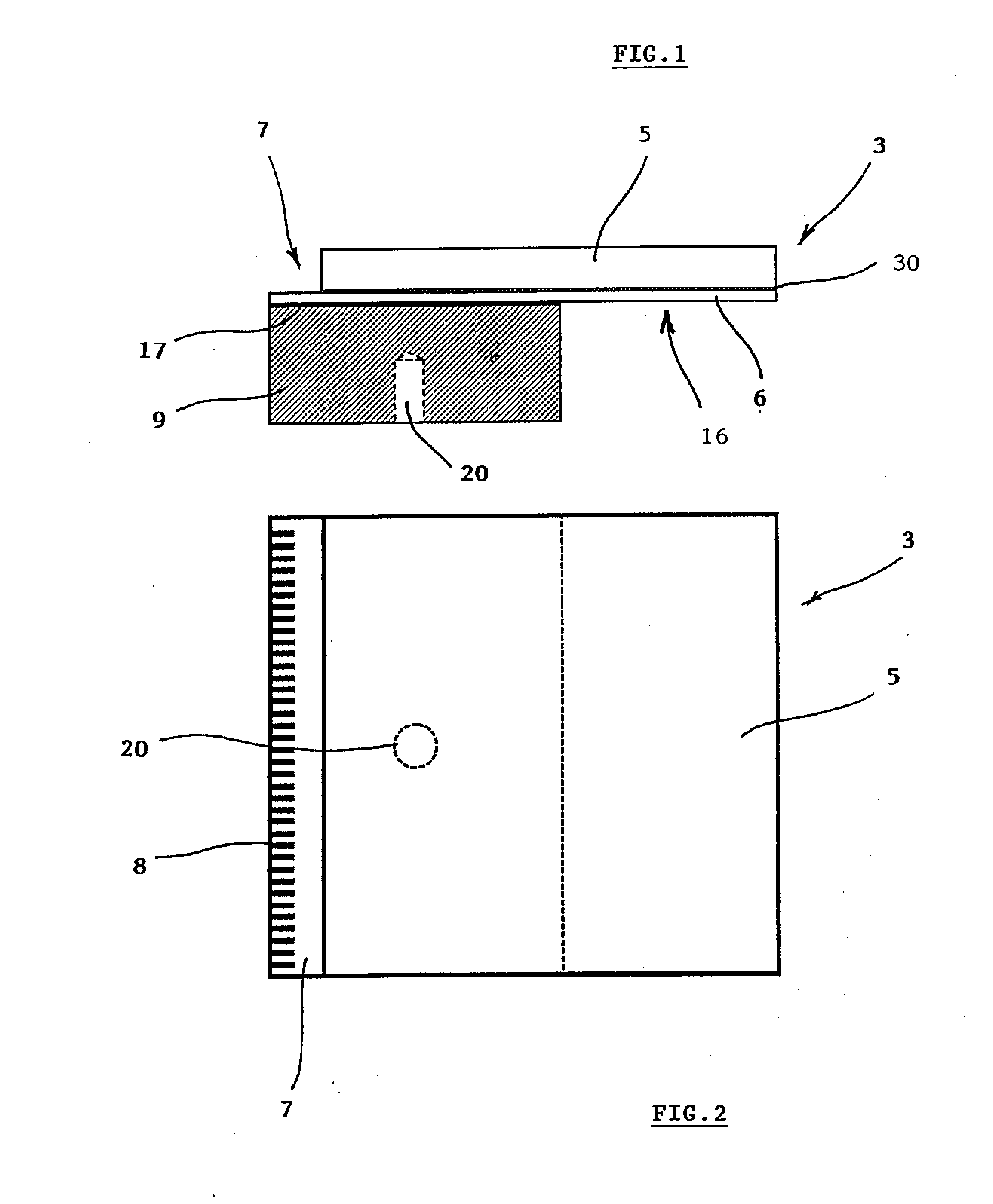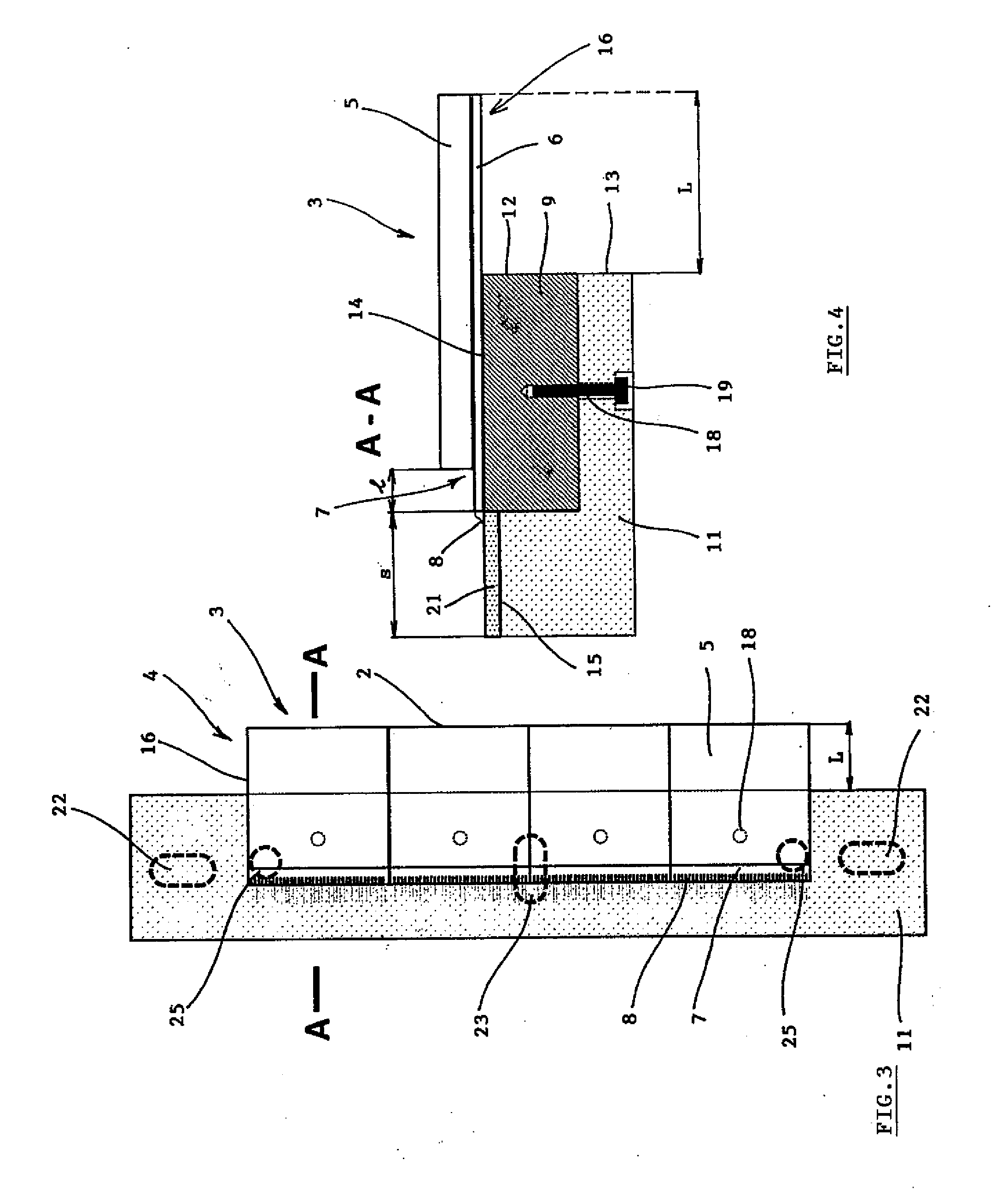Detector of ionizing radiation enabling a coherent digital image
- Summary
- Abstract
- Description
- Claims
- Application Information
AI Technical Summary
Benefits of technology
Problems solved by technology
Method used
Image
Examples
Embodiment Construction
OF THE PREFERRED EMBODIMENTS OF THE INVENTION
[0050]It should be understood that the specific examples of the invention described and illustrated below are presented for illustration and not as a limitation of the examples of the invention to these examples alone. Professionals familiar with the state of technology shall find, or will be able to determine through routine experimentation, a greater or smaller number of equivalents of the specific realization of the invention which are described herein. These equivalents shall also be included in the scope of the following claims.
[0051]The detector 1 shown in FIG. 1 to FIG. 9 is formed as a detector of X-rays, but with the use of suitable sensor layers 5 may also be adapted for the detection of other types of radiation. The base of the detector 1 is composed of a matrix 10 made of an aluminum alloy which carries the mosaic of detector segments 3 arranged in individual rows 4. Each detector segment 3 contains a square semiconductor pixe...
PUM
 Login to View More
Login to View More Abstract
Description
Claims
Application Information
 Login to View More
Login to View More - R&D
- Intellectual Property
- Life Sciences
- Materials
- Tech Scout
- Unparalleled Data Quality
- Higher Quality Content
- 60% Fewer Hallucinations
Browse by: Latest US Patents, China's latest patents, Technical Efficacy Thesaurus, Application Domain, Technology Topic, Popular Technical Reports.
© 2025 PatSnap. All rights reserved.Legal|Privacy policy|Modern Slavery Act Transparency Statement|Sitemap|About US| Contact US: help@patsnap.com



